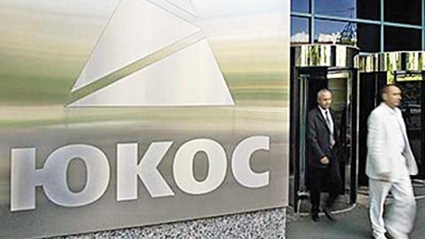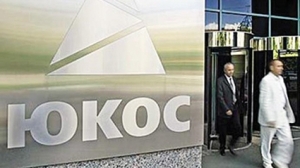Dechert OnPoint: Setting Aside the Yukos Award
Dechert Georgia, through the contribution of partners Archil Giorgadze and Nicola Mariani, joined by senior associates Ruslan Akhalaia and Irakli Sokolovski, as well as Ana Kostava and Ana Kochiashvili, is partnering with Georgia Today on a regular section of the paper which will provide updated information regarding significant legal changes and developments in Georgia. In particular, we will highlight significant issues which may impact businesses operating in Georgia.
The Setting Aside of the “Yukos Award” by The Hague District Court
The biggest story of the month in the global legal and business world was an unexpected judgement issued by The Hague District Court (the “Court”) on 20 April 2016 (the “Judgement”), which set aside the award issued by the Permanent Court of Arbitration (“PCA”) in The Hague on 18 July 2014 to the benefit of Yukos shareholders (the “Award”).
The award itself, crowning ten years of arbitral proceedings, is unprecedented in the sphere of international investment law, primarily due to its amount. The Russian Federation was ordered to pay more than USD 50 billion to former shareholders of Yukos, which was at one time the largest oil company in Russia. This week’s edition of OnPoint provides a brief overview of the “Yukos Saga,” as it is commonly known in the legal field, with reference to key facts, legal issues and potential future developments.
I. Dismantling Yukos and Khodorkovsky’s arrest
Yukos was a leading joint stock company in Russia in the oil and gas sector, listed as one of the world’s top ten companies in the sector in 2002. In 2003, the Russian state launched tax and fraud proceedings against Yukos and Mikhail Khodorkovsky, then the company’s largest ultimate beneficial shareholder. Khodorkovsky was sentenced to serve a ten-year sentence in Siberia before being pardoned by Putin in 2013. Yukos was declared bankrupt in August 2006 and its assets were nationalized by state-owned companies Rosneft and Gazprom.
II. The PCA proceedings and the Award
Three parallel arbitration proceedings were launched in PCA in 2005 by the majority shareholders of Yukos (Veteran Petroleum Ltd., Yukos Universal Ltd., and Hulley Enterprises Ltd.), which were companies registered in Cyprus and Isle of Man (the “Claimants”). The arbitrations were initiated under the Energy Charter Treaty (“ECT”) and the claimants’ original request was for no less than USD 114 billion. The arbitral tribunal was constituted of qualified international arbitration and investment experts. The Tribunal was chaired by Yves Fortier, with Charles Poncet and Stephen Schwebel serving as his co-arbitrators (the “Tribunal”). Russia brought up several jurisdictional objections.
Firstly, Russia signed but never ratified the ECT. However, the ECT itself in Article 45 provided that signatory states were bound to apply the Treaty provisionally pending its entry into force to the extent that such provisional application is not inconsistent with their constitution, laws or regulations. Because the Tribunal deemed that the ECT was applicable in its entirety, it concluded that such provisional application was not inconsistent with Russia’s constitution, laws or regulations, emphasizing that the termination of the provisional application of the ECT by Russia in 2009 had no impact on any investments made before such termination. As the ECT was applicable in its entirety, the Tribunal ruled that Claimants had the right to bring their case before arbitration under Article 26 of ECT, and thus the Tribunal had full competence to deal with the case.
Secondly, Russia claimed that the Tribunal was barred from entertaining the claims because of illegal actions of the Claimants themselves, and third, that tax proceedings, which were at the core of the disputed measures adopted by the Russian state, were carved-out of the ECT by its Article 21. The Tribunal rejected both of these objections. It decided that tax measures were a mere shield to cover the intent of expropriation, and that Russia took a series of measures in 2003-2006 leading to Yukos’s bankruptcy in 2006.
The Tribunal found that the expropriation of Yukos was not in the public interest but rather in the interest of the state-owned oil company Rosneft. Russia’s treatment of Yukos was discriminatory and failed the requirements of due process of law. To rule on the matter of contributory fault by the illegal actions of the Claimants, the Tribunal reviewed the causal link between the Claimants acts and the damages, and determined whether their contributions were material and significant. As a result, the quantum awarded to the Claimants was reduced by 25 percent. Finally, the Tribunal awarded over USD 50 billion, making it the largest damages award in the history of investment treaty arbitration.
III. The court proceedings and setting aside of the Award
Arbitral awards cannot be appealed, however, the courts of the jurisdiction where they are issued in generally have the power of limited review of questions related to the jurisdiction of the arbitral tribunal, if the proceedings to set-aside the award are brought before them. This option was used by Russia before the Court. In the Judgement, the Court aligned with Russia’s reading of Article 45 of the ECT. Contrary to the Tribunal’s reasoning, the Court ruled that provisional application depends on the compatibility of separate treaty provisions with national laws, rather than providing for the application of the ECT in its entirety.
Accordingly, the relevant question for the Court was whether the option for Claimants to go to arbitration, present in Article 26 of ECT, was in accordance with Russian law. The Court reasoned that Russian legislation “limits the option of arbitration to civil law disputes”, disputes related to Russian public law, i.e. tax law, may not be submitted to arbitration and can only be brought in the Russian national courts. On that basis, the Court rejected the Tribunal’s competence and set aside the award, stating that there was no need to discuss any other arguments brought by Russia.
IV. Results of the setting aside procedure and possible future developments
The Claimants have already declared their intent to appeal the Judgement. The recognition and enforcement proceedings of the Award are already commenced in several jurisdictions outside Russia and the Netherlands, namely France, Belgium and the USA. It is expected that the Judgement will have a negative impact on those enforcement proceedings. However, the final say lies with the higher courts in the Netherlands.
* * *
Note: this article does not constitute legal advice. You are responsible for consulting with your own professional legal advisors concerning specific circumstances for your business.
Dechert’s Tbilisi office combines local service and full corporate, tax and finance support with the global knowledge that comes with being part of a worldwide legal practice.
Dechert Georgia is the Tbilisi branch of Dechert LLP, a global specialist firm that focuses on core transactional and litigation practices, providing world-class services to major corporations, financial institutions and private funds worldwide. With more than 900 Lawyers in our global practice groups working in 27 offices across Europe, the CIS, Asia, the Middle East and the United States, Dechert has the resources to deliver seamless, high quality legal services to clients worldwide. For more information, please visit www.dechert.com or contact Nicola Mariani at nicola.mariani@dechert.com.











